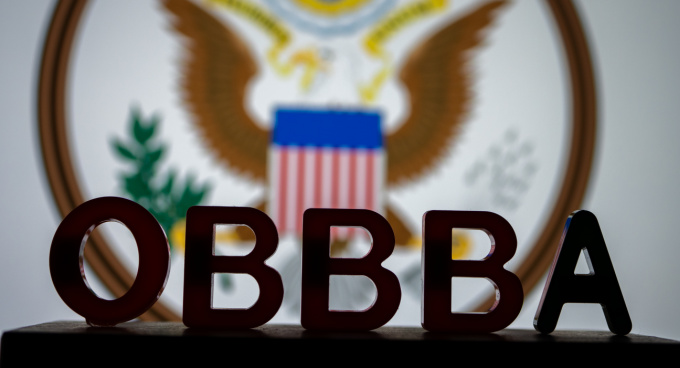Key Business Tax Changes in the One, Big, Beautiful Bill Act
 Posted by Megan Morris-Smith on July 14, 2025
Posted by Megan Morris-Smith on July 14, 2025
Signed into law on July 4, the One, Big, Beautiful Bill Act (OBBBA) introduces a range of tax changes that will significantly impact small and mid-sized businesses. While many of the provisions are favorable, some introduce new limitations. Below is a breakdown of the most notable updates.
Enhanced Depreciation and Expensing Provisions
100% First-Year Bonus Depreciation (Permanent)
The law permanently reinstates 100% bonus depreciation for eligible assets acquired after January 19, 2025. This is a major improvement over the previous 40% rate for eligible assets placed in service during calendar year 2025, which was law before OBBBA.
Bonus Depreciation for Qualified Production Property
The law created a new category of property called Qualified Production Property. Businesses investing in nonresidential real property used in manufacturing, agricultural production, chemical production, and refining can now claim 100% first-year depreciation on qualifying projects. Qualifying projects must have a construction start date between January 20, 2025, and December 31, 2028, and be placed in service within the U.S. or its territories by December 31, 2030.
Expanded Section 179 Expensing
For tax years beginning in 2025, the maximum Section 179 deduction increases to $2.5 million (up from $1.25 million before the law), with an overall eligible asset limitation phase-out threshold of $4 million (up from $3.13 million before the law). Both limits will be adjusted annually for inflation starting in 2026.
Research & Experimental (R&E) Expenditures
Starting in 2025, businesses can immediately deduct eligible domestic R&E expenses, rather than amortizing them over five years. For eligible small businesses (under $31 million 2025 gross receipts), this change can be applied retroactively to tax years beginning after 2021 by filing an amended return. For R&E costs incurred from 2022 to 2024, all businesses may elect to deduct the remaining unamortized balance over one or two years beginning in 2025.
Business Interest Deduction
Beginning in 2025, the law permanently restores a more favorable rule for calculating the business interest deduction. Specifically, the law increases the cap on the business interest deduction by excluding depreciation, amortization and depletion when calculating the taxpayer’s adjusted taxable income (ATI) for the year. This is expected to increase the computed ATI, which will generally increase the deductible interest expense for most taxpayers.
Qualified Small Business Stock (QSBS)
The law expands the capital gains exclusion for QSBS. For stock issued after July 4, 2025, the following exclusions apply:
- 50% for stock held at least 3 years
- 75% for stock held at least 4 years
- 100% for stock held at least 5 years
For stock acquired after July 4, 2025, the gain exclusion is increased to $15 million, which will be indexed for inflation. For QSBS eligibility, the limit on a company’s gross assets will be increased to $75 million (up from $50 million).
Corporate Charitable Deduction (C Corporations)
For tax years beginning after December 31, 2025, the OBBBA creates a minimum 1% taxable income floor for corporate charitable contributions, which can be deducted up to 10% of taxable income.
Qualified Business Income (QBI) Deduction Made Permanent
The law makes the QBI deduction permanent for owners of eligible entities. Previously, this deduction was set to expire after 2025.
Additionally, for tax years beginning after December 31, 2025, the income limitation for specified service businesses before the wage and asset limitation was favorably adjusted to $75,000 for non-joint returns (previously $50,000) and $150,000 for joint returns (previously $100,000) and a establishes minimum deduction of $400 for taxpayers with at least $1,000 of qualified business income.
Excess Business Loss Limitation Made Permanent
The OBBBA makes permanent the rule disallowing excess business losses for noncorporate taxpayers. Previously, this limitation was set to expire after 2028.
International Tax Provisions
The OBBBA made changes to several key deductions for taxpayers with international activities.
For tax years beginning after December 31, 2025, the Foreign-Derived Intangible Income (FDII) deduction is renamed to the Foreign-Derived Deduction Eligible Income (FDDEI) Deduction due to change in the computation of deduction eligible income and is reduced to 33.34% (from 37.5%).
For tax years beginning after December 31, 2025, the Global Intangible Low-Taxed Income (GILTI) deduction is renamed to Net CFC Tested Income (NCTI) due to change in the computation of tested income and is reduced to 40% (from 50%).
For tax years beginning after December 31, 2025, the Base Erosion and Anti-Abuse Tax (BEAT) tax rate is increased to 10.5% (currently 10%).
The Act also modifies how “tested” income from controlled foreign corporations (CFCs) and foreign tax credits are treated.
Termination of Clean-Energy Business Incentives
Several clean-energy tax incentives are being phased out:
|
Looking Ahead
The OBBB Act delivers a mix of permanent tax relief, expanded deductions, and strategic shifts in international and energy-related tax policy. Whether you're a small business owner or a multinational corporation, these changes could significantly impact your tax planning.
Need help navigating the new rules? Reach out to Lumsden McCormick to explore how the OBBB Act affects your business strategy.
Download a one-page summary of Effective OBBB Dates for Businesses here.


